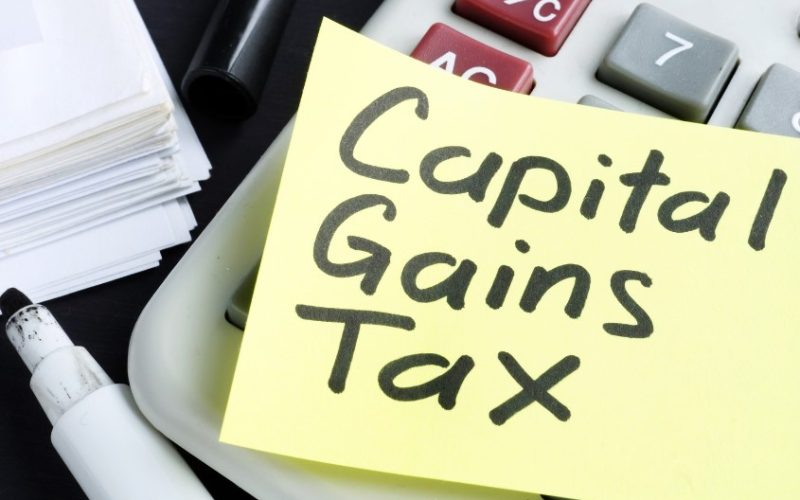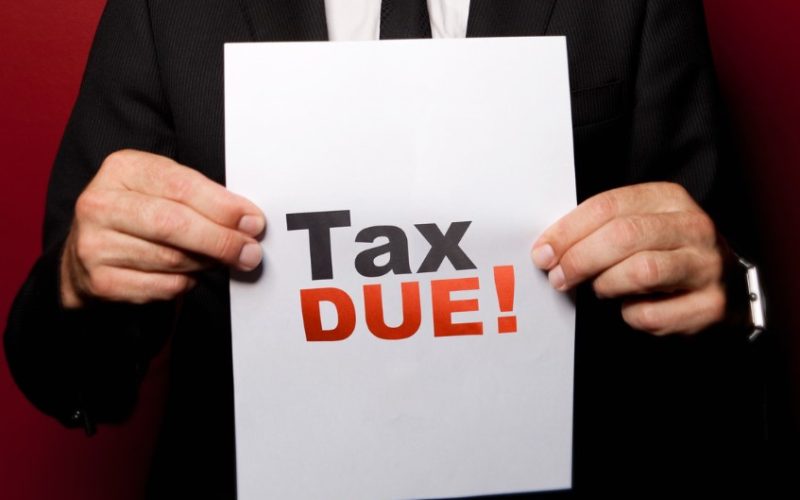Are you tired of paying huge sums in capital gains tax every year? If so, you’re in luck! Whether you’re a seasoned investor or just starting out, understanding how to avoid capital gains tax in Canada can save you thousands of dollars. In this complete guide, we’ll cover everything from what capital gains tax is to the various exemptions available to help reduce your taxes. So sit back, grab a cup of coffee and let’s dive into the world of avoiding capital gains tax in Canada!
What is Capital Gains Tax in Canada?

Capital gains tax is a tax on the profit made from selling an investment, such as stocks, bonds or real estate. In Canada, capital gains tax applies to any increase in the value of your investments since you first acquired them. This means that if you purchased a stock for $10 and sold it for $20, you would be required to pay taxes on the $10 gain.
The amount of capital gains tax owed is calculated based on your marginal income tax rate. For example, if your annual income puts you in the 30% bracket and you make a $10,000 profit on an investment sale, then your capital gains tax liability would be approximately $3,000
It’s important to note that not all investments are subject to capital gains tax in Canada. Some common exemptions include primary residences and gifts between spouses/common-law partners.
Understanding what capital gains tax is and how it works can help investors make better decisions when buying or selling their assets while minimizing their overall taxable liability.
How to Calculate Capital Gains Tax?

Calculating capital gains tax can be a bit complicated, but it’s important to have an understanding of how it works. First, you need to determine your adjusted cost base (ACB) for the asset that you sold. This includes the original purchase price as well as any expenses related to buying and selling the asset.
Next, calculate your proceeds from selling the asset by subtracting any selling expenses from the sale price. The difference between your ACB and proceeds is known as your capital gain.
To calculate your taxable capital gain, you need to multiply this amount by 50% since only half of all capital gains are taxed in Canada. The resulting figure will then be added to your income for that year and subject to tax at whatever marginal tax rate applies.
It’s important to keep detailed records of all transactions involving assets so that you can accurately calculate any potential capital gains taxes when needed. Consider consulting with a financial advisor or accountant if you’re unsure about how best to handle these calculations on your own.
How to Avoid Capital Gains Tax in Canada?
When it comes to avoiding capital gains tax in Canada, there are several strategies that you can use. First and foremost, one option is to take advantage of the principal residence exemption. This exemption allows you to avoid paying taxes in Canada on any gains made from selling your primary residence.
Utilizing Registered Retirement Savings Plans (RRSPs) or Tax-Free Savings Accounts (TFSAs) is another tactic. By contributing money to either of these accounts, you can defer taxes on any investment returns until a later date.
If you own a small business in Canada, another way to reduce your capital gains tax liability is by making use of the lifetime capital gains exemption. This exemption allows up to $892,218 (for 2021) in capital gains from qualified small business corporation shares and farm or fishing property sales.
Consider gifting appreciated securities or real estate properties instead of cash donations when making charitable contributions. Doing so not only benefits the charity but also allows for an offsetting deduction against taxable income while avoiding capital gain taxes altogether.
With careful planning and understanding of Canadian tax laws concerning capital gains tax exemptions and deferrals, individuals can effectively minimize their potential liabilities.
Capital Gains Tax Exemptions

Capital gains tax exemptions are a great way to reduce or completely eliminate the amount of tax you owe on your investments.
One of the most common types of capital gains tax exemptions in Canada is the principal residence exemption. This exemption allows homeowners to avoid paying taxes on any profit they make from selling their primary home.
Another type of capital gains tax exemption is called the lifetime capital gains exemption (LCGE). The LCGE applies to individuals who sell qualified small business corporation shares, farm property, or fishing property. The maximum amount that can be claimed under this exemption varies depending on the type of property sold.
It’s important to note that there are also special rules for spouses and common-law partners when it comes to capital gains tax exemptions. For example, if one spouse owns a rental property but both spouses live in it at some point during their marriage, they may be able to claim part or all of the principal residence exemption.
Additionally, certain charitable donations can also qualify for a partial or full capital gains tax exemption. By donating appreciated securities such as stocks or mutual funds directly to a registered charity instead of selling them first, investors can avoid paying taxes on any resulting capital gain while still receiving a charitable donation receipt for income tax purposes.
Understanding and taking advantage of available capital gains tax exemptions can help Canadian investors save money and maximize their returns over time.
Conclusion
Capital gains tax in Canada is a reality that every investor must face. However, with proper planning and knowledge about the available exemptions and deductions, it is possible to minimize or even avoid paying this tax altogether.
One important thing to keep in mind is that avoiding capital gains tax should not be the only factor driving your investment decisions. It’s essential to consider other factors such as risk tolerance, diversification, and liquidity when making investment choices.
Working with a professional financial advisor can help you navigate these complex issues more effectively. They can guide you through different investment strategies that help mitigate your overall tax burden while aligning with your financial goals.
Remember that taxes are an integral part of any functional society. By doing your part and paying what you owe while taking advantage of legal exemptions and deductions at the same time; then we contribute towards building our country’s economy positively.
FAQs on how to avoid capital gains tax in Canada
1. How long do I need to live in a house to avoid capital gains in Canada?
The CRA does not specify a minimum amount of time you must spend residing in a property to qualify it as your principal residence for any given year. You are not required to permanently occupy the residence.
2. What triggers capital gains tax Canada?
In Canada, capital gains or losses are only realized upon the sale of assets that are subject to capital gains tax, such as stocks, bonds, precious metals, real estate, or other types of property.
3. Do capital gains count as income?
Although they are typically taxed at a lower rate, capital gains are typically included in taxable income. A capital gain is made when a capital asset is sold or otherwise transferred for more money than its basis.










